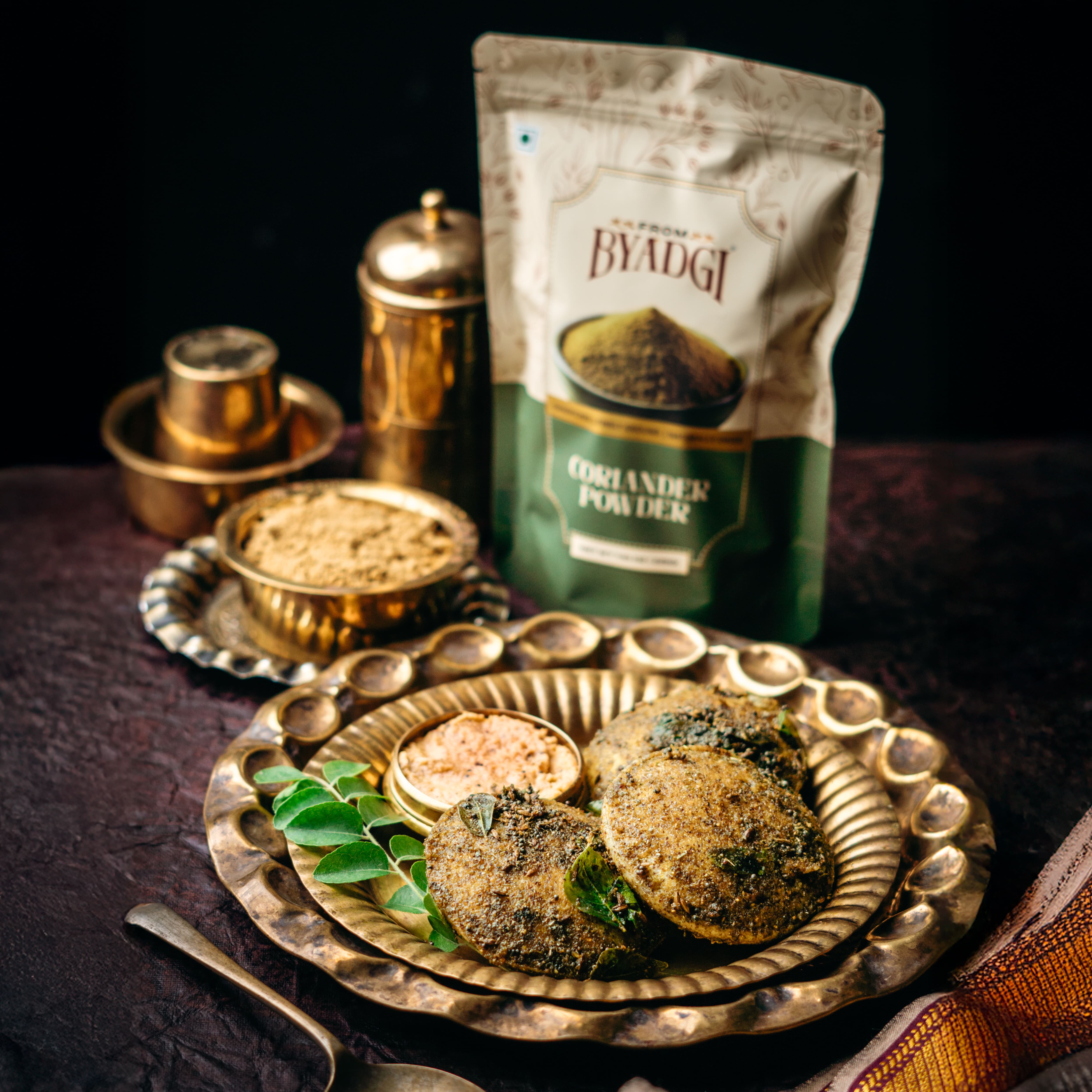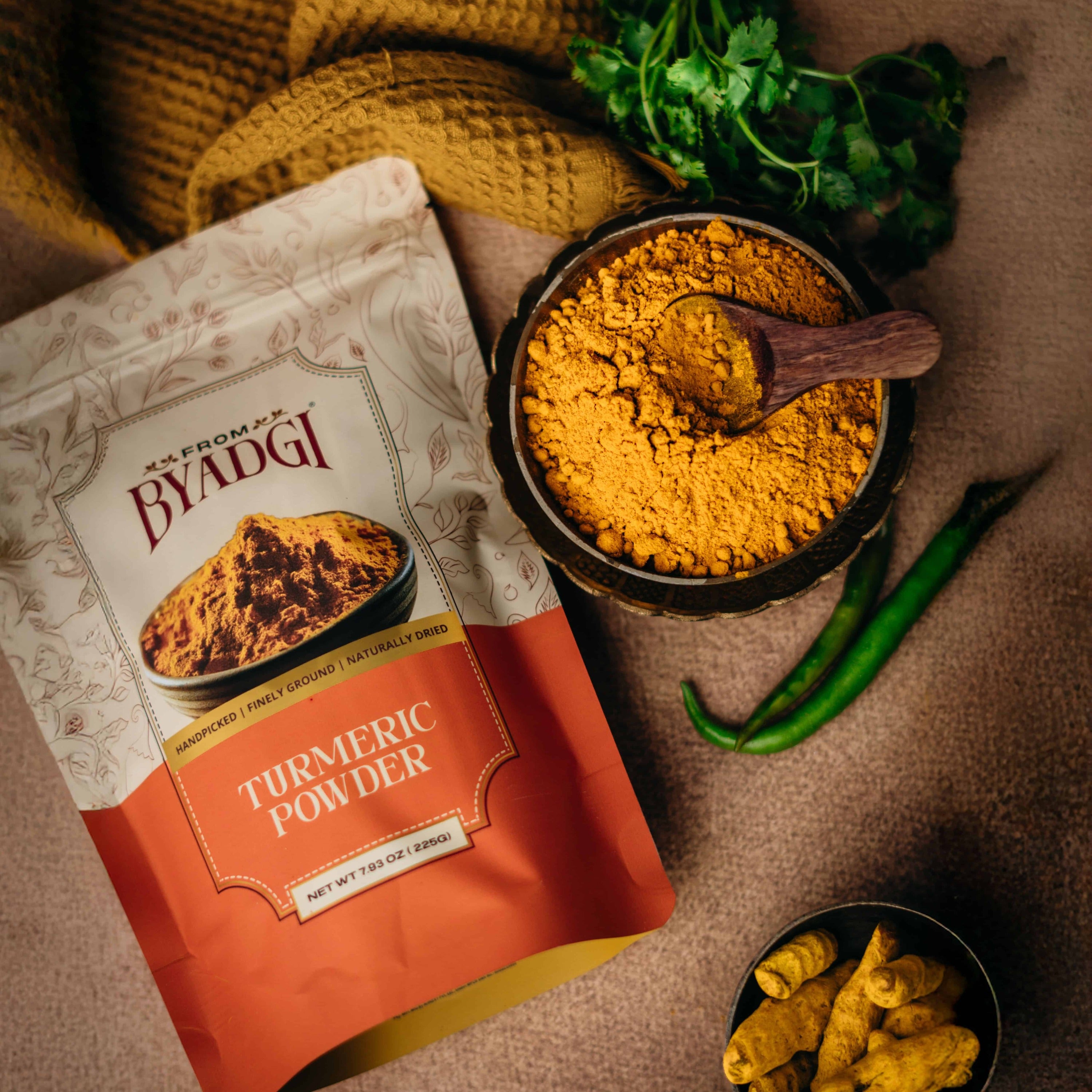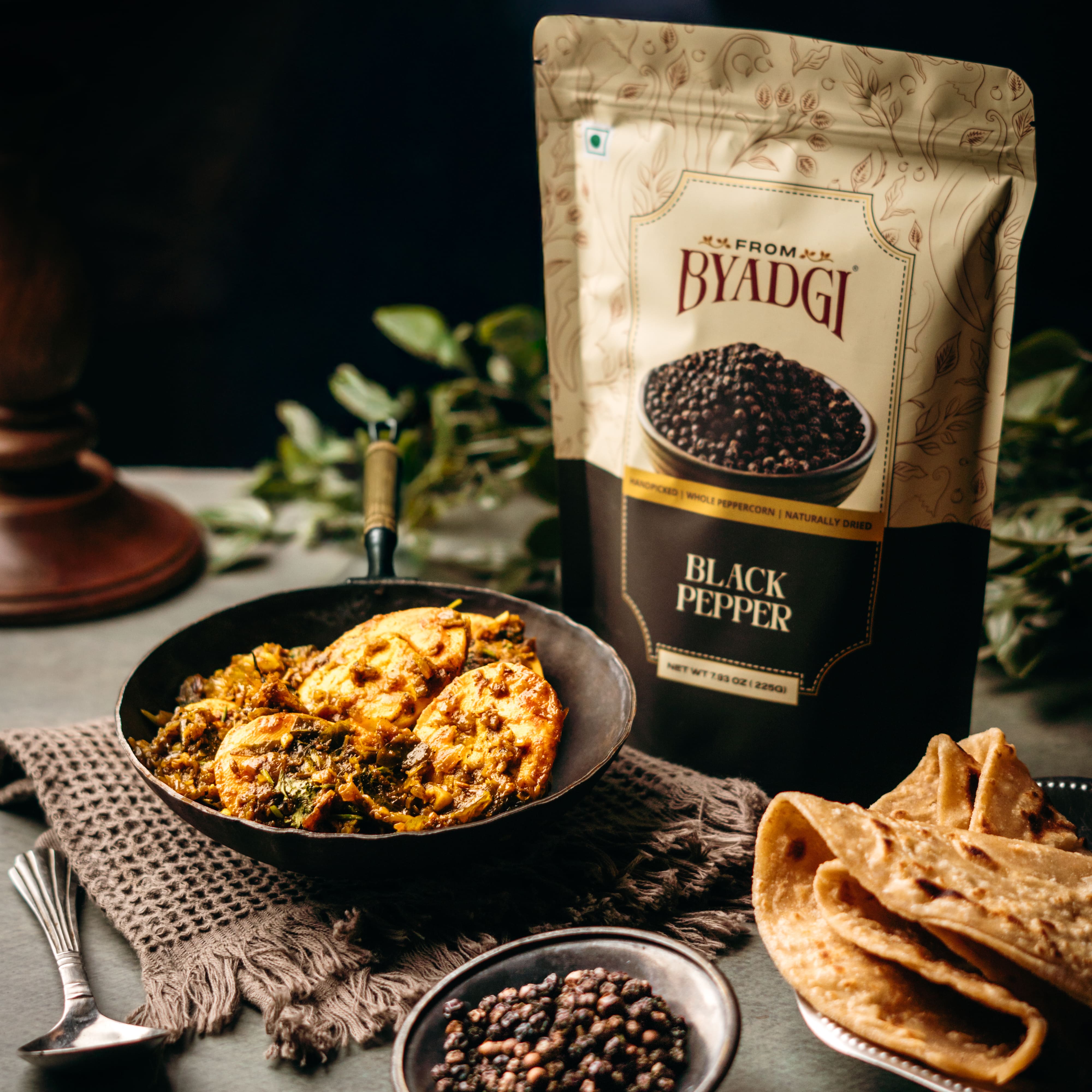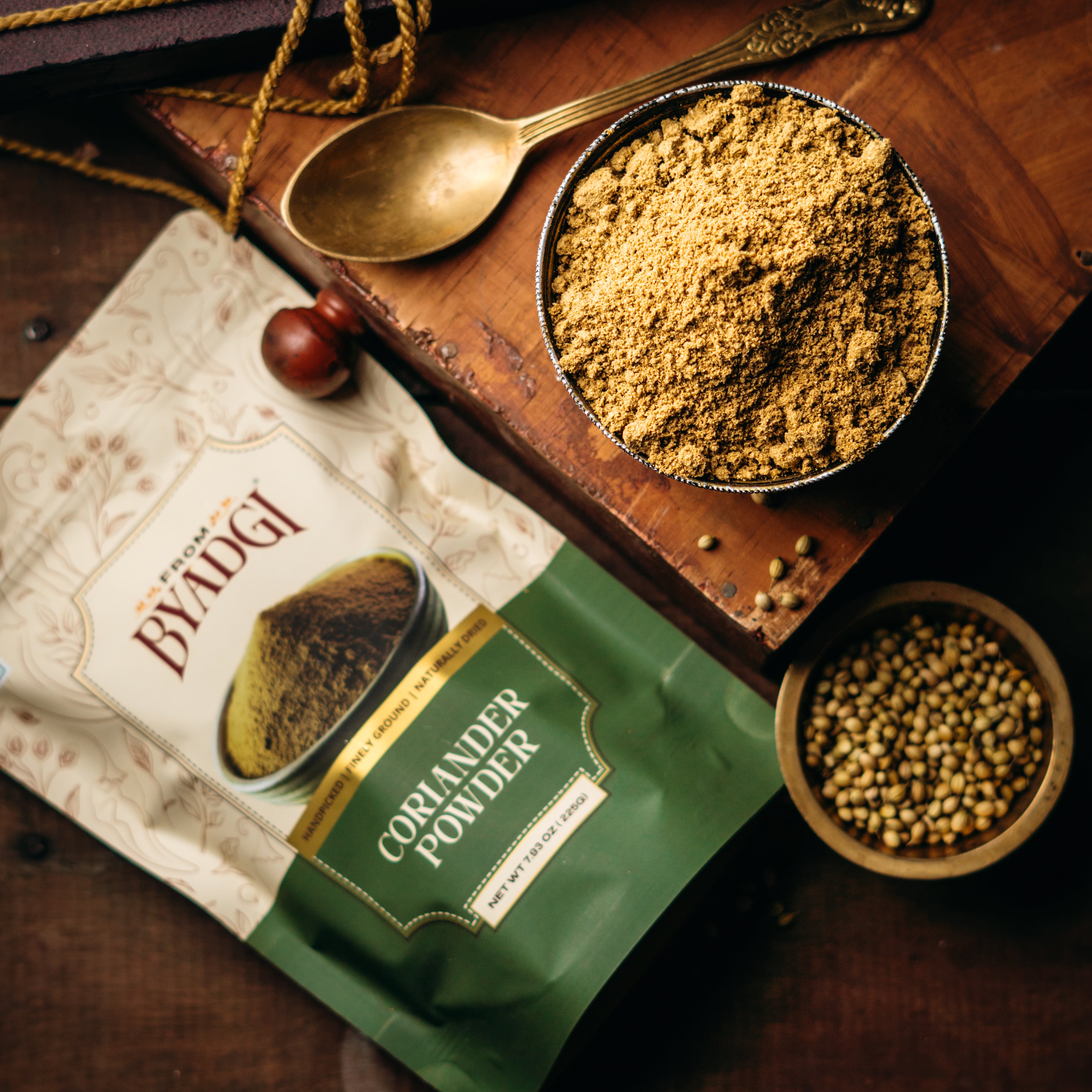
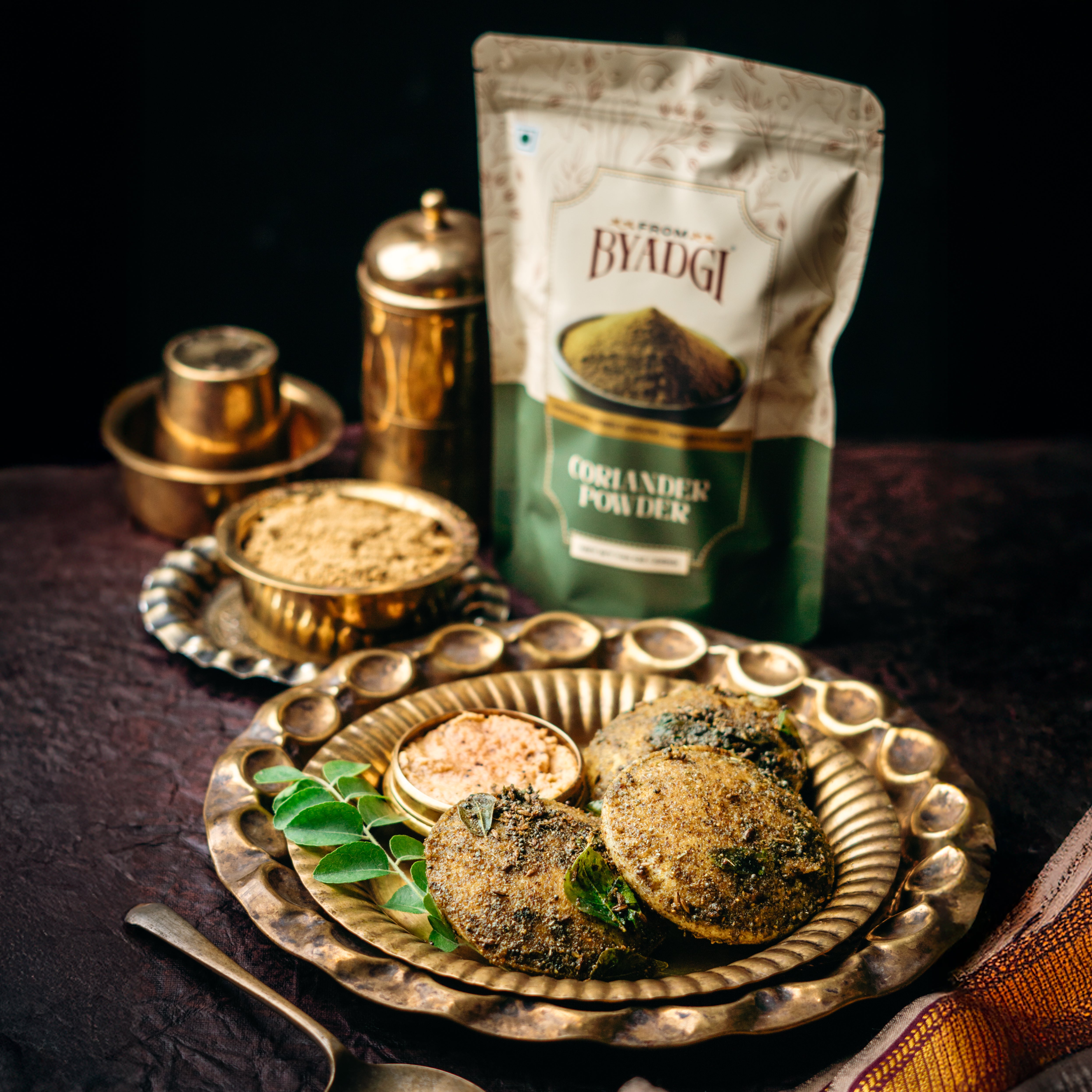
Ground Coriander
Non-GMO Certified*
Third-Party Lab Tested
Single-Origin
225g (8 oz)
*Non-GMO Project Verification in progress
Ground Coriander adds a warm, citrusy twist to your cooking. Perfect for curries, soups, and spice blends, this aromatic spice brings out the best in every dish. Finely ground for easy use, Ground Coriander is a must-have in every kitchen for bold, balanced flavor.
Pre-Order Now — Coming to you this December!
We’re launching with just 100 small-batch units!
Benefits
Promotes digestion and reduces bloating.
Packed with essential vitamins and minerals.
Supports a healthy immune system.
How to use
Chole Masala: Brings depth to this hearty chickpea curry.
Vegetable Stew: Enhances the subtle flavors of fresh vegetables.
Marinades: A go-to spice for flavorful meat and tofu preparations.
Nutrition Facts & Ingredients
Calories: 0 | Total Fat: 0 g | Carbs: 0 g | Protein: 0 g
Ingredient: Coriander

Single-Origin
Traceable spices from the same farmer each season.

Flavor-Rich
Vibrant aroma, deep color, and an unforgettable taste.

Clean & Authentic
Vibrant aroma, deep color, and an unforgettable taste.

Kitchen-Ready
No fillers, no additives — just pure, honest spice.
See How Real Cooks Use From Byadgi
Follow Us

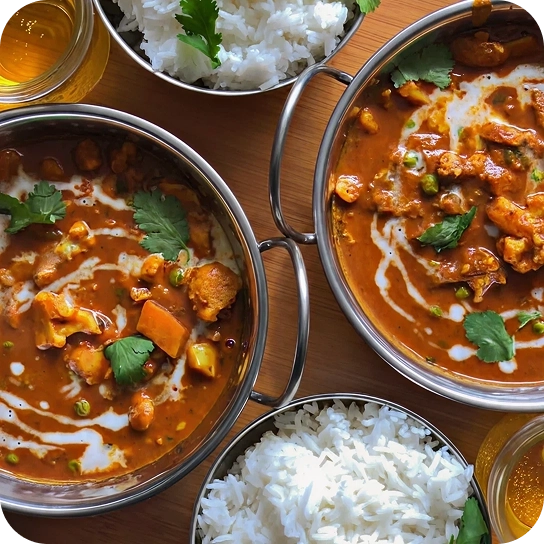
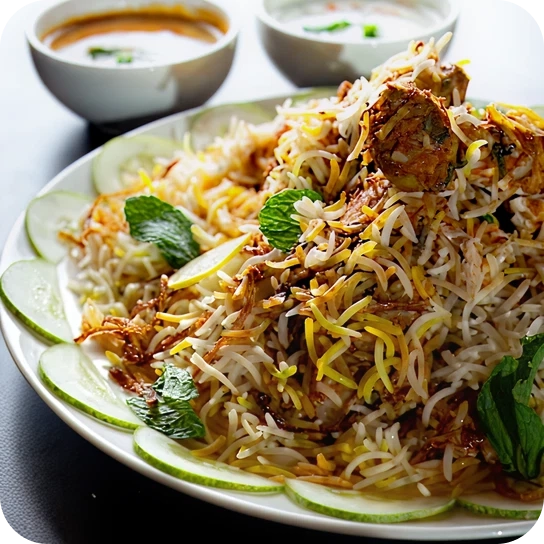
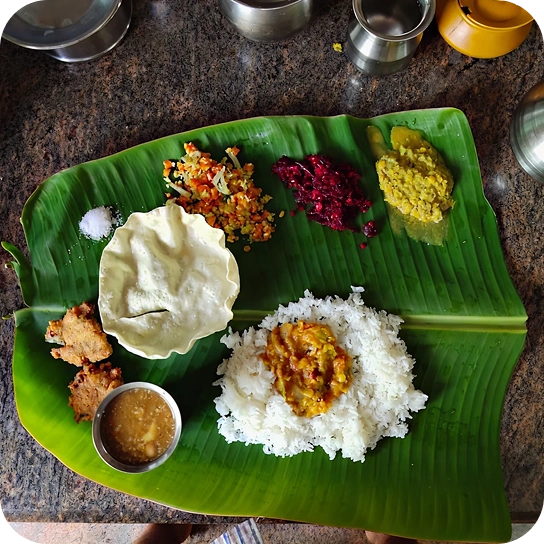
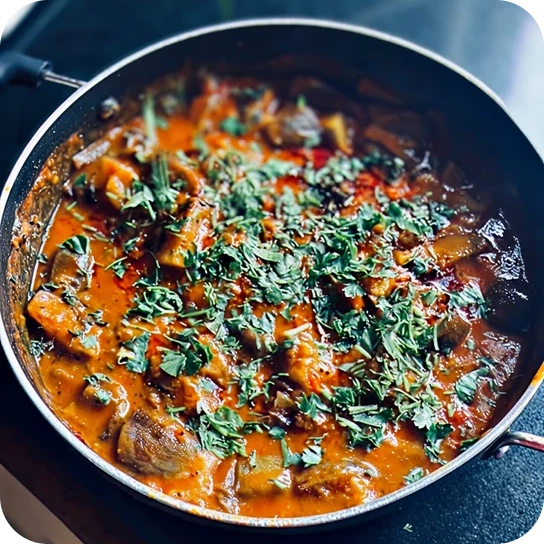

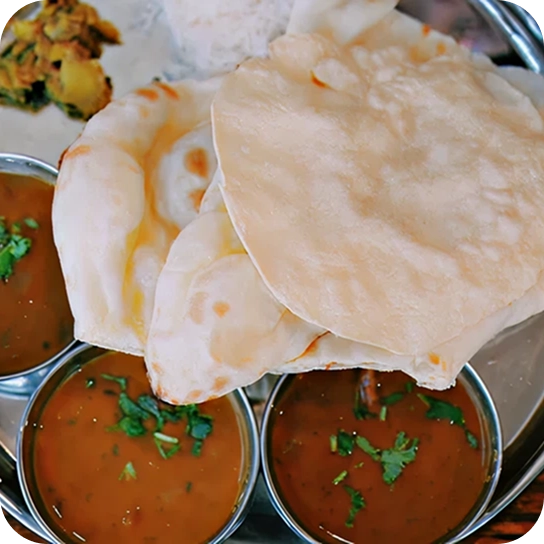






FAQs
Is the shipping free?
Free shipping on all U.S. orders of $70 or more
When will I receive my item?
Orders from the First Drop Preorder will begin shipping in the 4th week of December.
Limited products are available — first come, first serve. Once they sell out, they’re gone.
🔥 We are selling out fast!
Once your order ships, you’ll receive an email with your tracking number.
Delivery will take place Monday–Saturday, excluding holidays.
Can I change or return my item?
For our First Drop, you’re welcome to change or cancel your order anytime before December 15.
After that date, we’re unable to make changes, cancellations, or offer refunds, as orders will already be moving forward for fulfillment.
As a food product, our items are perishable, so we can’t accept returns once opened.
However, if your order arrives damaged, please reach out to us — we’re more than happy to help 💛
Most Loved
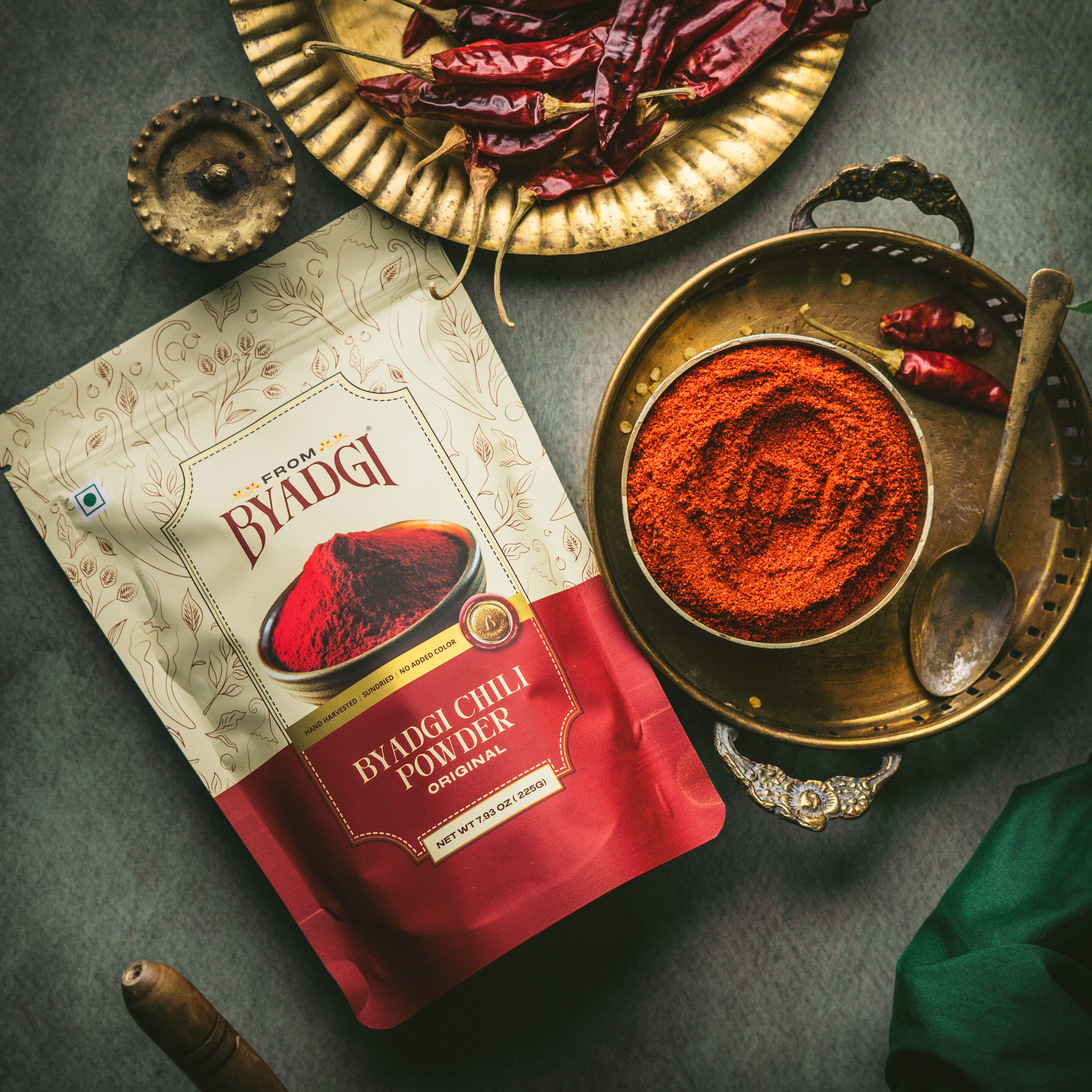
Byadgi Chilli Powder
